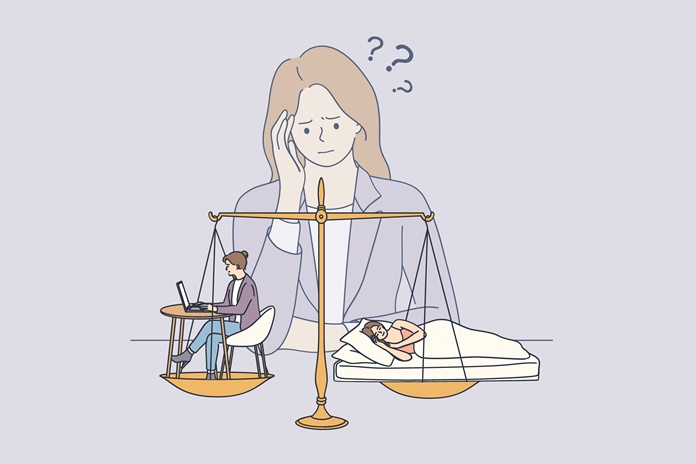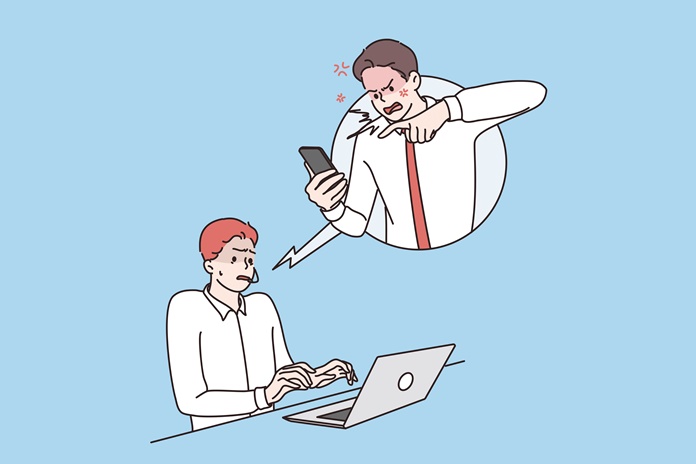Typical cases of overbearing stress of work in Hong Kong
The hectic life of Hong Kong people wears them out physically and psychologically and readily causes emotional illness in the workplace. Here are some typical examples:
Case 1: The anxious postman
Siu Ming serves as a postman. His daily tasks are delivering mails and collecting letters from postboxes at regular intervals. Occasionally, he stays in the post office, conducting the classification of mails and other clerical chores. Having a rather feeble body and average stamina, he finds the distribution of letters demanding and working at the post office relatively effortless.
During the past month, several postmen had quitted their jobs, leading to tension in manpower at the post office. Consequently, Siu Ming was assigned by his boss to dispatch even more letters, substantially increasing his workload. Working long hours outdoor consumed him a great deal of energy. And he was feeling even more worn out because of the sizzling weather. Being exhausted and having insufficient rest, Siu Ming began to commit minor errors, for examples, sending letters to wrong addresses and missing the time for collecting mails from post boxes. Afterwards, when his boss asked him for a conversation, he thought he would be laid off, which intensified his nervousness. But his concern backfired. The more he worried about possible blunders, the more cautious he became. His working efficiency was considerably reduced. Unfinished work was gradually piling up.
As the predicament lingered on, Siu Ming noticed he was never able to finish his work. As fear appears frequently, he became vulnerable to anxiety and nervousness, fidgeting and hesitating as well. His working efficiency further deteriorated. Back at home his mind was still being occupied with work-related issues, which impaired his appetite and sleep. He even had unbearable nightmares in which he was being chased by letter after letter.
Case 2: A depressed clerk
Siu Lai served as a clerk in a trading company. She had been a diligent employee and her senior was aware of that. Consequently, when the company went through its recent restructuring, she was assigned by her boss to another department that specialized in customer services, enjoying a substantial spike in wages as well. For the past decade or so, Siu Lai was handling paper work only. Dealing with clients for the first time certainly felt slightly uncomfortable for her. But she did her best to get accustomed to it, doing acceptably well in the beginning. However, after receiving complaints and abuses from clients via phone calls, she began to feel miserable, weeping secretly at times.
She reported her quandary with clients to related departments. Colleagues from other branches, however, only responded with harsh demands, leaving her torn between the company and her clients. Furthermore, being straightforward, she occasionally made unfulfillable promises to her clients. Her boss was upset, criticizing her sternly for a number of times.
Eventually, Siu Lai fell prey of depression, which began with insomnia only. Afterwards, she had regular dreams of getting disapprovals from clients, bosses and colleagues and often woke up in fear suddenly. Subsequently, she became absent-minded and listless during office hours, making insignificant mistakes again and again. Upon noticing that, her senior reprimanded her even more, which aggravated her unhappiness and created a vicious cycle.
Nip stress in the bud
An ample amount of work-related emotional distresses originate from changes in job duties, including promotion, transfer of positions and magnified workload. Failure to cope with these transitions may lead to adjustment disorder as a minor incidence; the worst scenario is anxiety disorder or depressive disorder of various degrees.
Going back to the case of Siu Lai, even though she earned a promotion and rise in wages with her performance, she was hindered by the vast difference in job nature of her previous and existing posts. Despite her mastery of clerical work, she was unable to exert her ability in the customer-related field. Meanwhile, the plight of Siu Ming shows that elevated workload and inadequate stamina are determining factors to his severe angst.
Fundamentally, adapting to changes in job nature requires several procedures. First, the human resources department should establish a pertinent mechanism for evaluating their staff’s ability, which allows the appropriate arrangement of positions. Regarding employees, they should have better understanding of their own capacity and interest and communicate thoroughly with their companies before transferring of positions.
Moreover, employees may, during their leisure time, participate in a variety of activities, including volunteer services, to broaden their scope of expertise and strengthen their competitiveness. For instances, a clerk may consider socializing campaigns. By doing so, s/he could perform the task properly if s/he is appointed a new position in the future.
Finally, when one shows symptoms of emotion induced by work stresses, those unstable emotions are detrimental to one’s work performance as well, forming a vicious cycle, as exemplified by the ordeals of Siu Ming and Siu Lai. To nip it in the bud, the best measure is to consult a doctor at the earliest stage.
Author|Dr. Hui Lung Kit
Private Psychiatrist, Fellow of the Royal College of Psychiatrists, Fellow of the Hong Kong Academy of Medicine and Fellow of the Hong Kong College of Psychiatrists.
After serving in public hospitals for more than a decade, Dr. Hui has engaged himself in promoting mental health in the community in recent years. Partnering with various community members, he paves the path of recovery for those who used to suffer mental illness.
Facebook專頁「心靈品書齋」:http://www.facebook.com/goodbooknotes
Email:huilungkit@gmail.com





